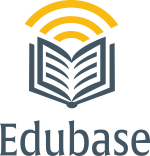Senses and meanings of inclusive education: what the professionals of the Training Center of Inclusive Education and Accessibility (CEIA/Canoas) reveal
DOI :
https://doi.org/10.7213/rde.v13i39.8327Résumé
This article examines some results of a collaborative-action-research in progress that hovers over the field of intercultural education, strengthening cultural diversity in the context of the training Center in Inclusive Education and Accessibility (CEIA) of the public school system of the city of Canoas. In this text, the definitions of inclusive education revealed by educators of the CEIA are presented and discussed. It is a research that is methodologically anchored in collaborative-action-research approach as has as axis articulator the formation and transformation of daily practices triggered through a process of inserting in the school space in the medium term. The analyses point to the construction of another culture of research in education, where the education professionals living the day to day can live the offset of the classical place of informants for the collaborators of the investigative process. It is in process the building of the sense of inclusive education as a result of an overall process where teachers, in and with their pedagogical work, propose spaces for living and learning situations capable of guaranteeing the special needs of their students in regular classes. Finally, the inclusive education happens when, at school, educational practices are invented betting on the experience as an organizing principle of pedagogical work.Téléchargements
Références
AINSCOW, M.; BOOTH, T. Índice de inclusión. Desarrollando el aprendizaje y la participación en las escuelas. Bristol: Unesco, 2000. Disponível em: <http://www.eenet.org.uk/resources/docs/Index%20Spanish%20South%20 America%20.pdf>. Acesso em: 29 mar. 2011.
ARAÚJO, C. M.; SILVA, E. M. Formação continuada de professores: tendências emergentes na década de 1990. Educação, v. 32, n. 3, p. 326-330, set./dez. 2009.
BRANDÃO, C. R. A pesquisa participante e a participação da pesquisa. Um olhar entre tempos e espaços a partir da América Latina. In: BRANDÃO, C. R.; STRECK, D. R. Pesquisa participante. O saber da partilha. São Paulo: Idéias e Letras, 2006. p. 21-54.
COMPIANI, M. A pesquisa em formação contínua indicando passos na extensão e formação contínua. In: BARBOSA, R. L. L. (Org.). Formação de educadores: artes e técnicas – ciências e políticas. São Paulo: Ed. da Unesp, 2006. p. 470-485.
DORNELLES, L. Infâncias que nos escapam. Petrópolis: Vozes, 2005.
ELLIOTT, J. El cambio educativo desde la investigación-acción. 3. ed. Trad. Pablo Manzano. Madrid: Morata, 2000.
FRANCO, M. A. S. Pedagogia da pesquisa-ação. Educação e Pesquisa, v. 31, n. 3, p. 483-502, dez. 2005.
INSTITUTO NACIONAL DE ESTUDOS E PESQUISAS EDUCACIONAIS – INEP. Censo Escolar da Educação Básica 2011. Resumo Técnico. Brasília: INEP, 2011. Disponível em: <http://download.inep.gov.br/educacao_basica/censo_escolar/resumos_tecnicos/resumo_tecnico_censo_educacao_basica_2011.pdf>. Acesso em: 16 jul. 2013.
LOPES, M. C. A inclusão como experiência. In: KLEIN, R. (Org.). Práticas pedagógicas em matemática e ciências nos anos iniciais. Caderno do professor coordenador dos grupos de estudos. São Leopoldo: UNISINOS/MEC, 2005.
KEMMIS, S.; McTAGGART, R. Cómo planificar la investigación-acción. Barcelona: Laertes Ediciones, 1992.
LEWIN, K. La investigación-acción y los problemas de las minorías. In: SALAZAR, M. C. (Org.). La investigación – acción participativa. Inicios y desarrollos. Trad. María Cristina Salazar. Madrid: Editorial Popular; Caracas: Editorial Laboratorio Educativo, 2006. p. 15-25.
MANTOAN, M. T. E. Inclusão escolar. O que é? Por quê? Como fazer?. São Paulo: Moderna, 2003.
MIRANDA, M. G. de; RESENDE, A. C. Azevedo Sobre a pesquisa-ação na educação e as armadilhas do praticismo. Revista Brasileira de Educação, v. 11, n. 33, p. 511-518, dez. 2006.
MOLINA, R. A pesquisa-ação/investigação-ação no Brasil: mapeamento da produção (1966-2002) e os indicadores internos da pesquisa-ação colaborativa. Tese (Doutorado em Educação) — Universidade de São Paulo, 2007. Disponível em: <http://www.teses.usp.br/teses/disponiveis/48/48134/tde-25072007-150643/>. Acesso em: 19 jun. 2009.
MONCEAU, G. Transformar as práticas para conhecê-las: pesquisa-ação e profissionalização docente. Educação e Pesquisa, v. 31, n. 3, p. 467-482, dez. 2005.
MOSCOVICI, S. Representações sociais: investigações em Psicologia Social. Petrópolis: Vozes, 2003.
NABUCO, M. E. Práticas institucionais e inclusão escolar. Cadernos de Pesquisa, v. 40, n. 139, p. 63-74, jan./abr. 2010.
NÓVOA, A. (Org.). Vida de professores. Porto: Porto Editora, 1995.
PIMENTA, S. G. Pesquisa-ação crítico-colaborativa: construindo seu significado a partir de experiências com a formação docente. Educação e Pesquisa, v. 31, n. 3, p. 521-539, 2005.
SANT’ANA, I. M. Educação inclusiva: concepções de professores e diretores. Psicologia em Estudo, v. 10, n. 2, p. 227-234, maio/ago. 2005.
SILVA, G. F. da et. al. (Org.). Conexões educativas: ensinar e aprender para além do que se vê. Porto Alegre: Prefeitura Municipal de Porto Alegre/Secretaria Municipal de Educação de Porto Alegre, 2006. n. 1. (Coleção Escola Faz).
TORRES, R. M. Educação para todos. A tarefa por fazer. Porto Alegre: Artmed, 2001.
VEIGA-NETO, A.; LOPES, M. C. Inclusão e governamentalidade. Educação e Sociedade, v. 28, n. 100, p. 947-963, out. 2007.
ZEICHNER, K. M.; DINIZ-PEREIRA, J. E. Pesquisa dos educadores e formação docente voltada para a transformação social. Cadernos de Pesquisa, v. 35, n. 125, p. 63-80, maio 2005.
Téléchargements
Publiée
Comment citer
Numéro
Rubrique
Licence
O(s) autor(es) transfere(m), por meio de cessão, à EDITORA UNIVERSITÁRIA CHAMPAGNAT, pessoa jurídica de direito privado, inscrita no CNPJ/MF sob o n.º 76.659.820/0009-09, estabelecida na Rua Imaculada Conceição, n.º 1155, Prado Velho, CEP 80.215-901, na cidade de Curitiba/PR, os direitos abaixo especificados e se compromete a cumprir o que segue:
- Os autores afirmam que a obra/material é de sua autoria e assumem integral responsabilidade diante de terceiros, quer de natureza moral ou patrimonial, em razão de seu conteúdo, declarando, desde já, que a obra/material a ser entregue é original e não infringe quaisquer direitos de propriedade intelectual de terceiros.
- Os autores concordam em ceder de forma plena, total e definitiva os direitos patrimoniais da obra/material à EDITORA UNIVERSITÁRIA CHAMPAGNAT, a título gratuito e em caráter de exclusividade.
- A CESSIONÁRIA empregará a obra/material da forma como melhor lhe convier, de forma impressa e/ou on line, inclusive no site do periódico da EDITORA UNIVERSITÁRIA CHAMPAGNAT, podendo utilizar, fruir e dispor do mesmo, no todo ou em parte, para:
- Autorizar sua utilização por terceiros, como parte integrante de outras obras.
- Editar, gravar e imprimir, quantas vezes forem necessárias.
- Reproduzir em quantidades que julgar necessária, de forma tangível e intangível.
- Adaptar, modificar, condensar, resumir, reduzir, compilar, ampliar, alterar, mixar com outros conteúdos, incluir imagens, gráficos, objetos digitais, infográficos e hyperlinks, ilustrar, diagramar, fracionar, atualizar e realizar quaisquer outras transformações, sendo necessária a participação ou autorização expressa dos autores.
- Traduzir para qualquer idioma.
- Incluir em fonograma ou produção audiovisual.
- Distribuir.
- Distribuir mediante cabo, fibra ótica, satélite, ondas ou qualquer outro sistema que permite ao usuário realizar a seleção da obra ou produção para recebê-la em tempo e lugar previamente determinados por quem formula a demanda e nos casos em que o acesso às obras ou produções se faça por qualquer sistema que importe em pagamento pelo usuário.
- Incluir e armazenar em banco de dados, físico, digital ou virtual, inclusive nuvem.
- Comunicar direta e/ou indiretamente ao público.
- Incluir em base de dados, arquivar em formato impresso, armazenar em computador, inclusive em sistema de nuvem, microfilmar e as demais formas de arquivamento do gênero;
- Comercializar, divulgar, veicular, publicar etc.
- Quaisquer outras modalidades de utilização existentes ou que venham a ser inventadas.
- Os autores concordam em conceder a cessão dos direitos da primeira publicação (ineditismo) à revista, licenciada sob a CREATIVE COMMONS ATTRIBUTION LICENSE, que permite o compartilhamento do trabalho com reconhecimento da autoria.
- Os autores autorizam a reprodução e a citação de seu trabalho em repositórios institucionais, página pessoal, trabalhos científicos, dentre outros, desde que a fonte seja citada.
- A presente cessão é válida para todo o território nacional e para o exterior.
- Este termo entra em vigor na data de sua assinatura e é firmado pelas partes em caráter irrevogável e irretratável, obrigando definitivamente as partes e seus sucessores a qualquer título.
- O não aceite do artigo, pela EDITORA UNIVERSITÁRIA CHAMPAGNAT, tornará automaticamente sem efeito a presente declaração.












